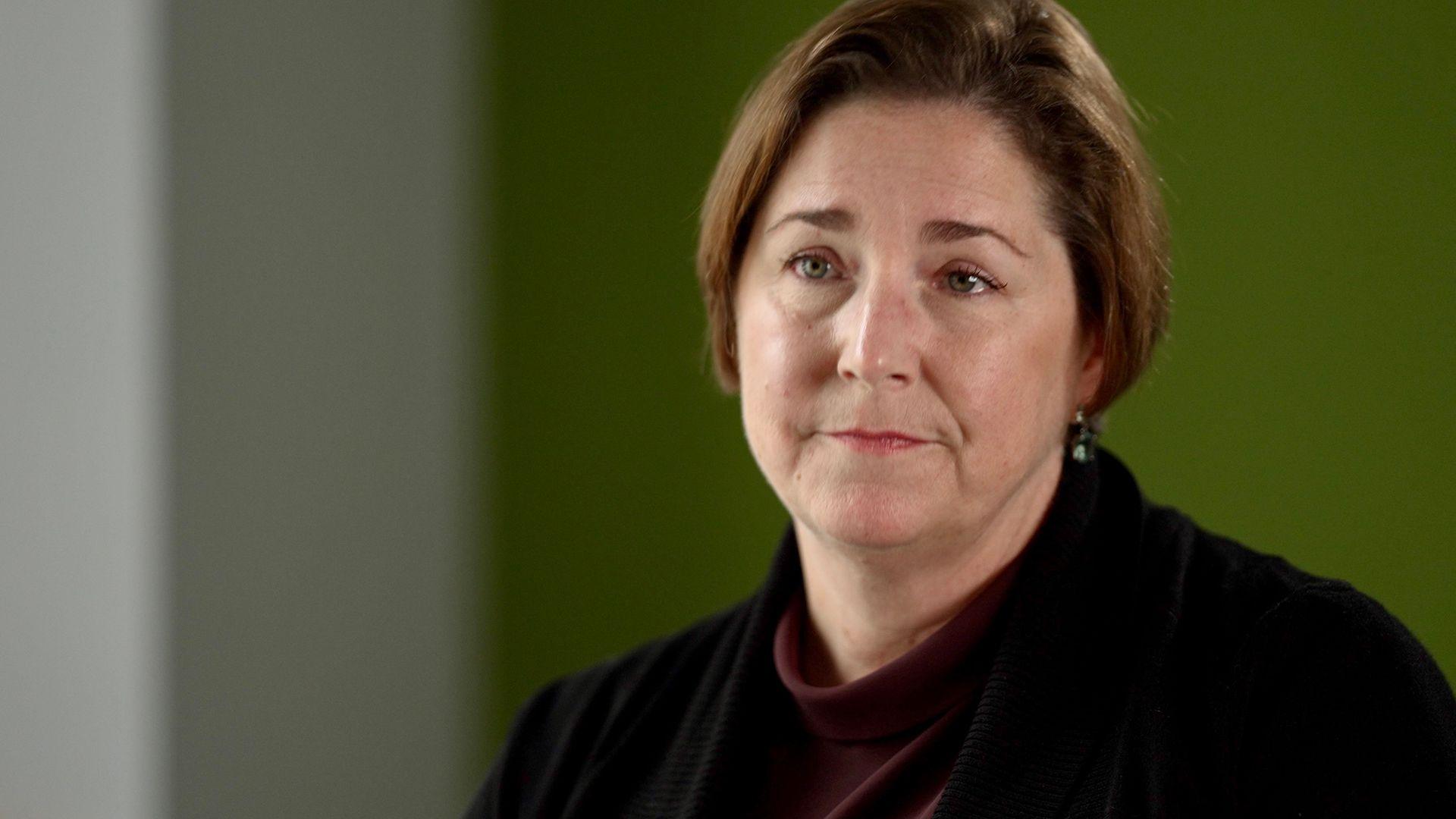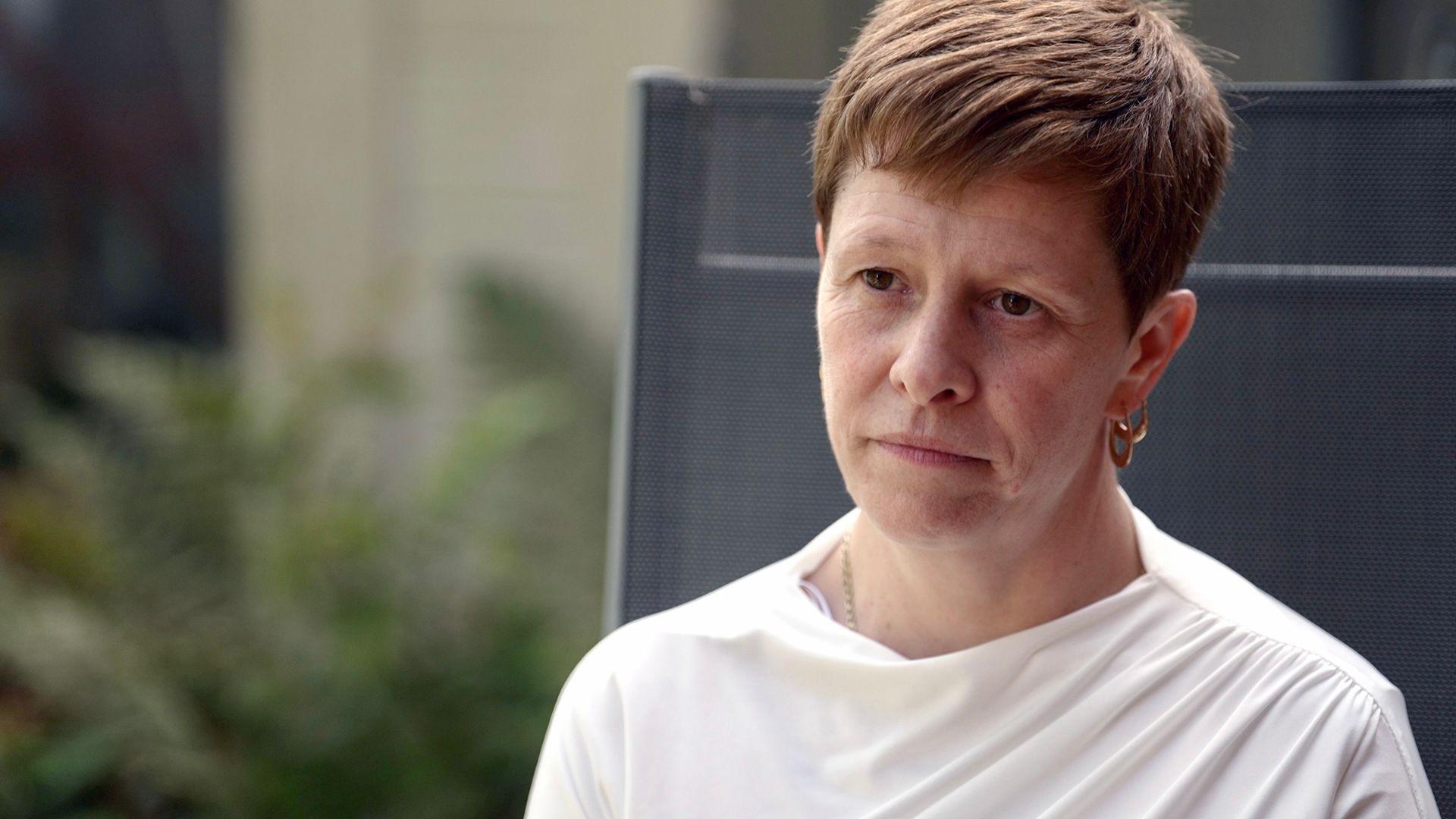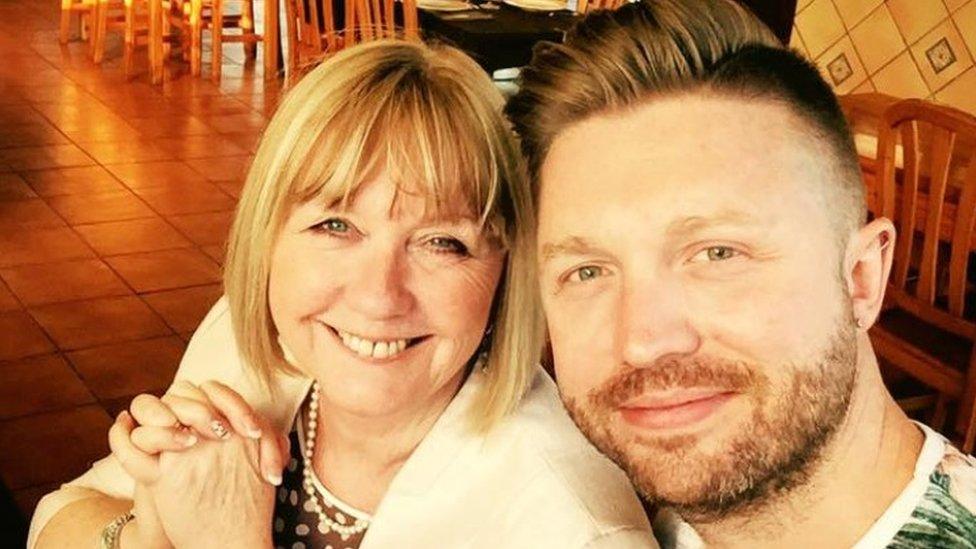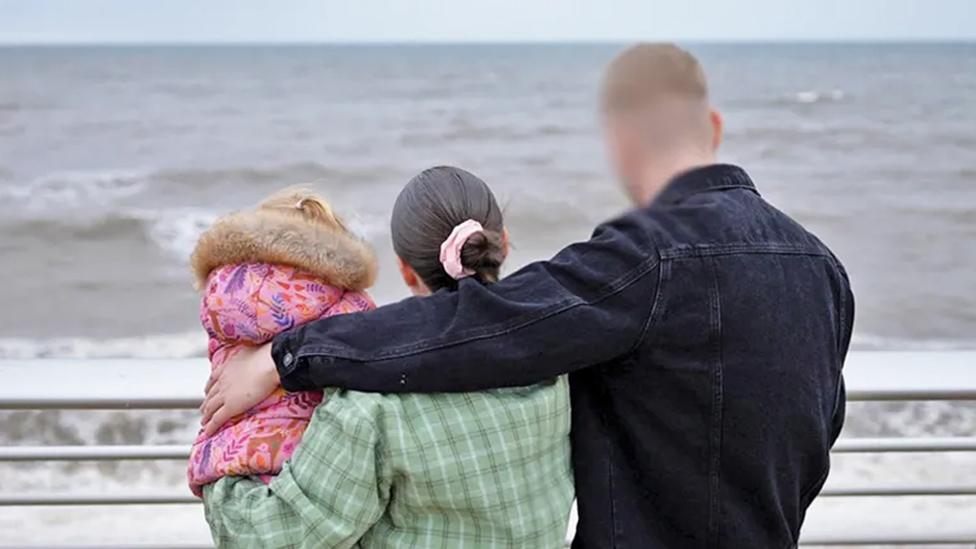Social workers lack training to tackle coercive abuse, BBC finds

Social worker Cintia says the coercive control training she had at university was "very poor"
- Published
“I remember having a one-hour lecture on domestic abuse, I had pretty much no mention of coercive control during my training,” says social worker Cintia. “It didn’t prepare us for what was coming. You feel like you're thrown into the deep end.”
After five years in the job, she estimates about 90% of her caseload is linked to psychological and controlling abuse, yet her university course barely mentioned it.
Coercive and controlling behaviour (CCB) has been a criminal offence in the UK since 2015. It isolates and harms victims using psychological abuse, and is now accepted to underpin all domestic abuse. Campaigners say understanding CCB is vital.
However, nine years on from the law change, a BBC investigation has found more than a third of accredited university social work courses in England are not teaching specific training on coercive control.
As for those who said they did offer training - courses could be up to 20 hours or as little as one hour.
The regulator, Social Work England, says it inspects these courses to ensure they meet professional standards for safe practice.

Social workers need mandatory training to spot controlling abusers, says Nicole Jacobs
The domestic abuse commissioner for England and Wales has described our findings as “baffling” and has called for mandatory levels of coercive-control training for all social workers.
“Sadly we have two homicides every week that relate to domestic abuse. We have to get this right from the start, not learning on the job,” says Nicole Jacobs.
More than 43,000 coercive control offences, external were recorded by police in England and Wales in the year to March 2023 - the highest number since it became a crime nearly a decade ago.
While men are affected too, research suggests women are more likely to be victims of coercive control.
Amelia (not her real name) says she was in an emotionally and physically abusive relationship for years. She can’t be identified as it would put her and her children in danger, but the BBC has seen written evidence of abuse allegations made to authorities.
When Amelia turned to social workers for help, she says they failed to see through her ex-partner’s deception.
“He had fed the social workers with lies. I wasn’t listened to. I wasn’t believed,” she says.
Amelia likens his controlling abuse to a dripping tap, slowly intensifying over time.
Initially he monitored who she saw and where she went, she says. He started calling her “useless” and “fat”. Occasionally he would slap her.
If you've been affected by domestic abuse or controlling behaviour, help and support is available via the BBC Action Line
He then began leaving lists of chores, she says, which she had to do while he was at work. The lists grew longer. At the same time, the punishments for not completing them became more severe.
On what she describes as the worst night of her life, Amelia struggled to get the dinner ready in time and her partner attacked her, strangling her until she lost consciousness. One of their children was in the room at the time, screaming hysterically throughout.
Amelia finally plucked up the courage to leave.
Even when living apart, the controlling abuse continued to have a devastating impact on the family’s mental health. But whenever Amelia turned to children’s services for help, she says she was blamed, because her ex-partner had “charmed them”.
She says social workers called her a “bad mum” several times.
If social workers had known more about the signs of coercive control, says Amelia, it would have made a difference.
“Services that are supposed to help probably caused our family added trauma,” she says.
“I do not blame the social workers. I blame the training provided to them.”

Survivor Samantha Billingham offers training about coercive control
There are many men, women and children who are being let down by a system that doesn’t understand coercive control, says Samantha Billingham, a survivor of such abuse.
“Perpetrators, whether male or female, are very clever. So they do not necessarily only control the survivor, they control the professionals as well - including social workers,” says Billingham, who now offers training through her organisation, Stronger Beginnings.
‘What happens when I have gone?’
“If I don't do my job right, that can mean someone loses their life, whether that's a child or a victim of domestic abuse,” says 30-year-old social worker Dominika. “There’s a massive load on our shoulders.”
She and Cintia work for Birmingham Children’s Trust, which replaced the council-run children’s services department in 2018.
The BBC met them as they took part in a specialist training day, including first-hand accounts of coercive control, run by their employer.
During the session, social workers share concerns about entering the home of a controlling abuser.
“Is it going to increase the risk [for the victim] when I've gone?” one asks.
The Trust acknowledges it is a complex issue that staff find challenging.

If professionals get it wrong, people might die, says social worker Dominika
Cintia, 29, says she is grateful for the support because her training at university was “very poor, very minimal”.
Dominika believes it is a similar experience for current social work students they meet on placements, who “don't really have much understanding”.
BBC findings support this view.
Freedom of Information requests were sent to all 75 universities in England that train social workers.
Social Work England, which accredits these courses, clearly states the curriculum should be updated to reflect the law. But, of the 67 universities that responded, 25 (37%) admitted they did not carry out any specific training on coercive and controlling behaviour, even though nearly a decade has passed since it became a crime.
And less than 10% of higher education accredited social work courses in England offered students a standalone course on coercive control.

Men can be affected by coercive and controlling behaviour too. “Jack” used to have to hand his phone to his ex-partner so she could check it.
After eventually leaving the relationship, he says she continues to control him by denying contact with their child. Jack claims that malicious allegations from her were not properly investigated because social workers failed to see him as a victim of CCB.
Listen to Jack’s story on Five minutes on… on BBC Sounds.

“I think we're really letting social workers down by not having a consistent approach to training,” says commissioner Nicole Jacobs.
Social Work England says education standards have been developed with providers to ensure safe and effective practice. It is also currently finalising new guidance for student social workers which it says will make clear the need for them to understand and recognise coercive control.
But when we shared details of some of the ways coercive and controlling behaviour is currently taught at universities, campaigner Samantha Billingham told us she found it “really dangerous and really shocking”.
Understanding coercive control, she says, “should be at the forefront of social workers’ minds when going into these homes”.
All images Stephen Fildes / BBC
Related topics
- Published27 September 2022

- Published7 May 2024
